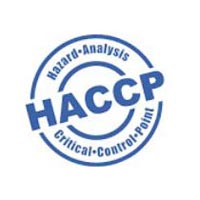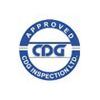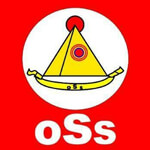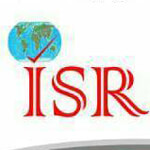
BRC Food Certification Services
Get Price Quote
Elevate your food safety standards with our BRC Food Certification Services. We guide your business through the British Retail Consortium (BRC) certification process, ensuring compliance with global food safety regulations. Our expert services cover documentation, audits, and assessments, demonstrating your commitment to producing safe and quality food products. Achieve BRC Food Certification seamlessly with our assistance, enhancing consumer confidence and opening doors to global markets. Trust us to navigate the complex certification journey, allowing your brand to stand out for its commitment to food safety and quality. Partner with us for a recognized mark of excellence in the food industry.

HACCP Certification in Mumbai
25,000 - 30,000 Per piece
We are providing haccp certification services. Haccp systems must be based on the seven principles articulated by the nacmcf. The seven principles are: (1) hazard analysis, (2) critical control point identification, (3) establishment of critical limits, (4) monitoring procedures, (5) corrective actions, (6) record keeping, and (7) verification procedures.l; haccp is a management system in which food safety is addressed through the analysis and control of biological, chemical, and physical hazards from raw material production, procurement and handling, to manufacturing, distribution and consumption of the finished product. Haccp can be applied throughout the food chain from primary production to final consumption and its implementation should be guided by scientific evidence of risks to human health. Haccp is a very effective since it prevents the occurrence of incidents at the cost of unnecessary waste.
Looking for Food Certification Services Providers

FSSC 22000, ISO 22000, BRC certification for Food & packaging company in Delhi, Baddi, Kundli, India
200,000 - 2,500,000 Per unit
1 unit (MOQ)
We provide a framework for the systematic identification, assessment and management of risks which are related to food safety, in order to comply with legal requirements, to prevent the occurrence of risks and to continuously improve. FSSC 22000 was created by the non-profit organization FSSC (Food Safety System Certification), a combination of the requirements of ISO 22000 and ISO / TS22002-1 (= Prerequisite Programs on Food Safety for Food Manufacturers), which replaced the PAS 220 and is recognized by the largest food retail chains worldwide. BRC Food Safety Standard was developed by the British Retail Consortium (BRC) and is addressed in many food companies wishing to export to supermarket chains in Great Britain. ISO 22000 is an internationally applicable standard, which specifies the requirements for developing and implementing an effective Food Safety Management System..

Halal Certification Services
Get Price Quote
The Halal certificate is a document that guarantees that products and services aimed at the Muslim population meet the requirements of Islamic law and therefore are suitable for consumption in both Muslim-majority countries and in Western countries where there are significant population group who practice Islam We specialize in offering HALAL Certification services. Halal certification we provide is recognition that the products are permissible under Islamic law. These products are thus edible, drinkable or usable by Muslims. Our services are supplying the consumer and our customers with the finest, high-quality products and to leading the industry in nutrition research and education.

Haccp Certification Services
Get Price Quote
Benefits of Implementing HACCP HACCP can be applied throughout the food chain from the primary producer to final consumer : HACCP reduces the need for finished product testing by identifying the hazards associated with the inputs into the process and the product and devising control measures which can be monitored in order to minimize or eliminate the hazards. HACCP will significantly reduce the chance of microbiological, chemical, and physical contaminants from reaching the customer. HACCP can reduce regulatory involvement (and hence costs) by replacing on-line inspection with regular auditing. HACCP principles can be applied to other aspects of food quality and regulatory requirements. HACCP improves communications between supplier and customer. It encourages businesses to work together more closely. HACCP is capable of accommodating changes such as advances in raw materials, equipment and premise design, procedures, and technological developments. It improves customer confidence leads to increased market share.

HACCP Certification
Get Price Quote
Get in touch with us, if looking for HACCP Certification Service. We are regarded as the eminent HACCP Certification Service provider from Delhi (India). We care for our clients and assist them in getting this certification to improve the brand image by making available top of the line quality food products. We have hired a team of experts who are expert in handling all the work related to Service. Details : QSC has the capability and resources to support companies throughout the process of developing an effective HACCP Standards certification program, performing independent audits of compliance-related processes and controls, and reporting on results. Hazard Analysis and Critical Control Points (HACCP) is a systematic preventive approach to food safety and pharmaceutical safety that addresses physical, chemical, and biological hazards as a means of prevention rather than finished product inspection. HACCP is used in the food industry to identify potential food safety hazards, so that key actions, known as Critical Control Points (CCP's) can be taken to reduce or eliminate the risk of the hazards being realized. The system is used at all stages of food production and preparation processes including packaging, distribution, etc. The Food and Drug Administration (FDA) and the United States Department of Agriculture (USDA) use mandatory juice, seafood, meat and poultry HACCP programs as an effective approach to food safety and protecting public health. Meat and poultry HACCP systems are regulated by the USDA, while seafood and juice are regulated by the FDA. The use of HACCP is currently voluntary in other food industries

Halal Certification Services in Delhi, Noida, Ghaziabad, Gurgoan,
Get Price Quote
Halal certified: Assure customers that the food served is Halal and healthy and the premise's hygiene and sanitation procedures are in top-notch. Widen the range of customers by attracting Muslim customers and non-Muslim who are Halal consumers.

ISO 22000:2005 Food Safety Certification Services
Get Price Quote
Every food product manufacturer/supplier in the country requires ISO 22000:2005 Food Safety Certification. Obtaining the certification declares that a specific manufacturer/supplier follows the international standards for demonstrating the ability to display that the food item proffered is entirely safe for human/animal consumption. It can be used in any industry regardless of its size. Since it is accepted internationally, it benefits and impacts the food safety management system that goes beyond regulatory compliances. Contact us anytime for utilizing this service.

ISO 22000:2005 Food Safety Certification Services
Get Price Quote
What is HACCP? :Management Systems such as HACCP when granted by an International Registration Body provides organizations with the basic management requirements assisting in the implementation of effective food safety and good practices (cGMPs) and demonstrating to others. HACCP is endorsed by the United Nations “Codex Alimentarius? USA FDA - USDA, European Union, Canada, Australia, New Zealand, and Japan etc.We provide recognized ISO 22000 Certification Services in most competitive fee. ISO 22000:2005 specifies requirements for a food safety management system. In this, an organization in the food chain needs to demonstrate its ability to control food safety hazards to ensure that food is safe at the time of human consumption and it can be accomplished through the use of internal and/or external resources. It enable an organization to plan, implement, operate, maintain and update a food safety management system aimed at providing products that, according to their intended use, are safe for the consumer. Also, to evaluate and assess customer requirements, we demonstrate conformity with those mutually agreed customer requirements that relate to food safety, in order to enhance customer satisfaction.What is ISO 22000? : The International Organization for Standardization (ISO) has developed the ISO 22000 Food Safety Management Systems Standard. Officially called ISO 22000, Food Safety Management Systems - Requirements for any organization in the food chain, ISO 22000 is an international standard and defines the requirements of a Food Safety Management Systems covering all organisations in the food chain from “farm to fork? including catering and packaging companies. There has been a continuous increase in consumer demand for safe food. This has led to the development of numerous food safety standards. The growing number of national standards for food safety management has led to confusion. Consequently, there is a need for international harmonization and ISO aims to meet this need with ISO 22000. The standard combines generally recognized key elements to ensure food safety along the food chain including: interactive communication; system management; control of food safety hazards through pre-requisite programmes and HACCP plans; and continual improvement and updating of the management system. ISO 22000 is intended to define the requirements for companies that desire to exceed the regulatory requirements for food safety. Who should use the standard? :As food safety hazards may be introduced at any stages of the food chain, adequate control throughout the food chain is essential. Thus food safety is a joint responsibility that is principally assured through the combined efforts of all the parties participating in the food chain.ISO 22000 may therefore apply to, and not be limited to : Primary food producers through to food manufacturers, including food Retail and food service outlets Feed producers Transport operators and storage operators Producers of equipment and packaging material Producers of cleaning agents, additives and ingredients Benefits to users : Benefits for organizations implementing ISO 22000 include : Resource optimization - internally and along the food chain More efficient and dynamic food safety hazard control All control measures subjected to hazard analysis Better planning, less post process verification Improved documentation Saves resources by reducing overlapping system audits - how? Systematic management of prerequisite programmes Control focused on what is necessary Widely applicable because it is focused on end results Organized and targeted communication among trade partners (repeated below) Valid basis for taking decisions Increased due diligence Dynamic communication on food safety issues with suppliers, customers, regulators and other interested parties A systematic and proactive approach to identification of food safety hazards and development and implementation of control measures. Further benefits include : Confidence that the organizations which are implementing the standard have the ability to identify and control food safety hazards Provides a reference for the whole food chain Contributes to a better understanding and further development of Codex HACCP System approach, rather than product approach Fills a gap between ISO 9001 and HACCP Provides a framework for third party certification Auditable standard with clear requirements Suitable for regulators Provides potential for harmonization of National standards.

Haccp Certification Services
Get Price Quote
We provide haccp certification services. haccp is a preventative approach to food safety and pharmaceutical safety which addresses physical, chemical, and biological hazards as a means of prevention rather than finished product inspection. Haccp is compatible with management systems, such as iso 9001and certification is recognized worldwide by government food authorities and food businesses. background haccp was developed as a microbiological food safety system for astronauts at the beginning of the manned us space program. The pillsbury company, nasa and the us army laboratories at natick pioneered the original system. At that time food safety systems were based on end-product testing. Ensuring full safety required testing 100 percent of the product. The preventive food safety system was born to ensure high level of food safety without using the entire product. haccp principles, developed by the codex alimentarius of the world health organization, demand that organizations establish effective food safety systems through the application of a systematic approach to hazard and risk analysis. This standard is used in the food industry to identify potential food safety hazards, so that key actions, known as critical control points (ccp's) can be taken to reduce or eliminate the risk of the hazards. food safety and public health agencies recognize haccp as the preferred tool for food safety assurance and improving regulatory food standards. The food safety and inspection service of the us department of agriculture (fsis-usda) mandated haccp in meat and poultry processing in 1996. The food and drug administration (fda) later mandated haccp for seafood and juices. The world health organization (who) advises the incorporation of haccp into international and national food legislation to improve food inspection efficiency. benefits provides employees with an understanding of the importance of producing safe food reduces spoilage costs helps reduce and possibly eliminate food safety liabilities improves consistency in product quality and safety improves business that relies on compliance with haccp gives customers increased confidence in your food safety improves competitiveness and makes your company a supplier of choice

Halal Certification Services
Get Price Quote
Hazard Analysis and Critical Control Point, iso 21001 certification service

halal certification
Get Price Quote
halal certification, CE-MARKING, GMP Certification

haccp certification service
Get Price Quote
HACCP stands for Hazard Analysis and Critical Control Point. The HACCP system, as it applies to food safety management, uses the approach of controlling critical points in food handling to prevent food safety problems

Haccp Certification Services
Get Price Quote
The certificate issued by an independent accredited certification body guarantees that the food quality and safety management system has been established, documented and used in accordance with the requirements of haccp standard. Haccp is a prevention based food quality and safety management system. It provides systematic methods for analysing agricultural and food industry production processes, identification of all possible risks, hazard analysis, determining the critical control points necessary for ensuring quality and safety of food products and consistent management and control of such critical points. Haccp is based on codex alimentarius, developed by food and agricultural organization of the united nations and world health organization. Benefits of certification • attestation of suitability, efficiency and effectiveness of the established critical points system by a third independent party; • attestation of meeting the haccp requirements beyond the scope of the minimum requirements laid down by the national legislation; • meeting the requirements of the most demanding customers (trade chains and multinational companies); • guarantee of production process stability; • optimizing costs; • enhancing trust of the public and public monitoring bodies

ISO 22001:2005 Food Safety Management System(FSMS) Certifications
Get Price Quote
FSMS is the management system dealing with food safety. Food Products life cycle the objects of from starting from raw material purchase, Products, manufacturing, Preserving, Distribution, & Consumption. Its is a systematic approach to identify the specific hazard its effective control & monitoring, It can also be integrated with quality management system. Requirement of FSMS: Products Description Establishing Policy Implementation of plan & programme Quality Records & Documentation Management Review Continual Improvement Checking & Corrective Action Benefits of FSMS: Enhances Customer Confidence Transforms Commodities in to Branded Products International Acceptance Improves Marketing Reduction in Defective Products & Customer Complaints Reduction of food hygiene related problem.

HACCP Certification
Get Price Quote
Hazard Analysis Critical Control Point or HACCP stands for a series of process control procedures and sensitive points in the food chain. The main aim of this process control procedure is to keep the quality of food consumable by the consumer. This standard is actually an international standard after being introduced in the seventies. The process of certification is similar to many other food-governing standards. HACCP follows a five step process in certifying a food as safe. These steps include Preparation, developing HACCP plan, Implementing the plan, International certification body system, Monitoring and maintenance of HACCP system.

Haccp Certification Services
Get Price Quote
Haccp can be considered a management system that addresses food safety through the analysis and control of biological, chemical, and physical hazards right from raw material production, procurement and handling, to manufacturing, distribution and consumption of the finished product. It's designed to be used in all segments of the food industry, and all the safety systems based on haccp principles have been successfully applied. Globally, food industries, as well as government agencies have accepted the seven principles of haccp, which are: analyze hazards determine the critical control points (ccps) establish preventive measures with critical limits for each control point establish procedures to monitor the critical control points establish corrective actions to be taken when monitoring shows that a critical limit has not been met establish procedures to verify that the system is working properly establish effective record keeping to document the haccp system advantages haccp offers a number of advantages focuses on identifying and preventing hazards from contaminating food enhanced assurance of food safety better management of resources timely response to problems is based on sound science permits more efficient and effective government oversight helps food companies compete more effectively in the world market reduces barriers to international trade

HACCP Certification
Get Price Quote
Haccp is a systematic approach to the identification, evaluation, and control of food safety hazards based on the following seven principles: principle 1: conduct a hazard analysis. Principle 2: determine the critical control points (ccps). Principle 3: establish critical limits. Principle 4: establish monitoring procedures. Principle 5: establish corrective actions. Principle 6: establish verification procedures. Principle 7: establish record-keeping and documentation procedures.

halal certification service
Get Price Quote
Halal certificate is a surety that products comply with the Islamic requirements. Halal certification can enhance the marketability of your products.

Haccp Certification Services
Get Price Quote
Iso 22000 / haccp is premier food safety management system standard used throughout the world in food industry. It is a preventive quality management system designed for providing intensified controlling and monitoring during important processes of food suppliers that helps to improve their food safety and quality but is also able to make profits through cost reduction and reduced rejections. haccp is built around seven principles analysis of food hazards: biological, chemical or physical identification of critical control points: raw materials, storage, processing, distribution and consumption establishment of critical control limits and preventive measures: for example, minimum cooking temperature and time monitoring of these critical control points establishment of corrective actions keeping records establishing a systematic and regular auditing of the system in place by independent third party certification bodies. benefits of implementing haccp haccp can be applied throughout the food chain from the primary producer to final consumer : haccp reduces the need for finished product testing by identifying the hazards associated with the inputs into the process and the product and devising control measures which can be monitored in order to minimize or eliminate the hazards. haccp will significantly reduce the chance of microbiological, chemical, and physical contaminants from reaching the customer. haccp can reduce regulatory involvement (and hence costs) by replacing on-line inspection with regular auditing. haccp principles can be applied to other aspects of food quality and regulatory requirements. haccp improves communications between supplier and customer. It encourages businesses to work together more closely. haccp is capable of accommodating changes such as advances in raw materials, equipment and premise design, procedures, and technological developments. it improves customer confidence leads to increased market share.

Food Safety Management Certification
Get Price Quote
Food Safety Management Certification

HACCP Certification
Get Price Quote
HACCP Certification, pre shipment inspection, ISO 14001 Lead Auditor Training

Haccp Certification Services
Get Price Quote
Iso 9001 Consultant, ISO 22000 Certification, ISO 9001 2015 Certification

food security services
Get Price Quote
food security services

Best HACCP Certification Services
Get Price Quote
Best HACCP Certification Services, C-tpat Certification

Nutrition, Food Security & Public Distribution System
Get Price Quote
Nutrition, Food Security & Public Distribution System, environment protection

HACCP Certification
Get Price Quote
HACCP Certification, six sigma certification, Wrap Certification

Halal Certification Services
Get Price Quote
CE Certification Services, BIFMA, GMP, FDA, HALAL

Food Inspection Service
Get Price Quote
Food Inspection Service, textile inspection service, Laboratory Setup Service

FSSC 22000: Food Safety Standard Certifications
Get Price Quote
FSSC 22000: Food Safety Standard Certifications, Social Accountability SA 8000